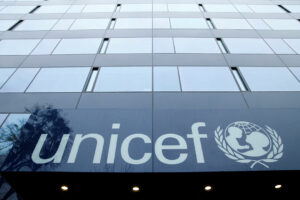ACCESSIBLE and accurate data on children will help drive investment that will allow the Philippines to reap the benefits of the demographic dividend, the United Nations Children’s Fund (UNICEF) Philippines said.
“We really need to invest now in the coming years in ensuring that children and young people have the education and skills they need to become economically active participants of this country,” Behzad Noubary, deputy representative for Programmes at UNICEF Philippines, said during the launch of the Situation Analysis of Children Virtual Platform on Monday.
“So, I think this Situation Analysis is useful in pointing out the window of opportunity that we have on the demographic dividend,” he said.
According to the World Bank, a demographic dividend refers to “the accelerated economic growth that can result from a rapid decline in a country’s fertility and the subsequent change in the population age structure.”
Mr. Noubary also cited the need to look at data relating to children’s other rights, like the right to survive and thrive, the right to learn, and the right to be protected.
“If those rights are violated, then we are hindering the next generation from being economically active and productive members of society.”
“I think by diving into those separations, then we can see where the issues are to try to address them to make sure that the Philippines can make the best use of this demographic dividend window between now and 2050.”
The platform analyzes six main dimensions of and 25 subdimensions of children’s rights, including health and nutrition, education, protection, safe and sustainable environment, child poverty and social protection, and civil and participation rights.
It also features a comprehensive analysis and data visualization, including key progress, indicators, child rights, equity and risk, legislation, policy, bottlenecks, and relevant publications.
Through its platform, the UNICEF is also seeking to collect more data on children with disability or victims of violence.
“When the right data and evidence are in the right hands at the right time, decisions can be better informed, more equitable, and more likely to protect children’s rights,” UNICEF Philippines representative Oyunsaikhan Dendevnorov said in a separate statement. — Beatriz Marie D. Cruz
